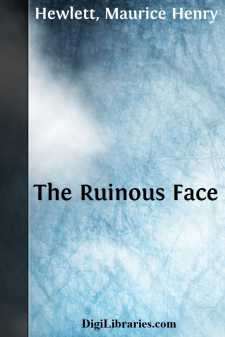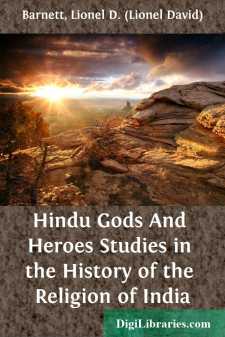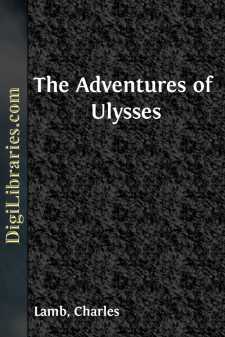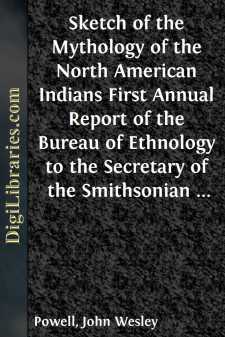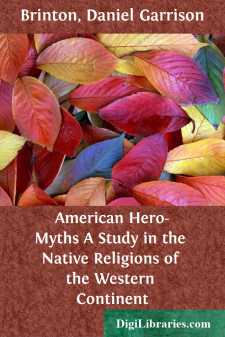Social Science
Social Science Books
Sort by:
CHAPTER I.a.d. 1307–1612. Origin of the name “Dean”?—The “Buck Stone,” and other Druidical remains—“The Scowles,” &c., and other ancient iron-mines, worked in the time of the Romans—Symmond’s Yat, and other military earthworks—Domesday Book, and investment of this Forest in the Crown—William I., and probable date of Free Miners’ Franchise—Castle of St. Briavel’s...
more...
THE CRUCIFIXION OF THE OUTCAST. A man, with thin brown hair and a pale face, half ran, half walked, along the road that wound from the south to the town of Sligo. Many called him Cumhal, the son of Cormac, and many called him the Swift, Wild Horse; and he was a gleeman, and he wore a short parti-coloured doublet, and had pointed shoes, and a bulging wallet. Also he was of the blood of the Ernaans, and...
more...
PREFACE The period in which the story of The World's Desire is cast, was a period when, as Miss Braddon remarks of the age of the Plantagenets, "anything might happen." Recent discoveries, mainly by Dr. Schliemann and Mr. Flinders Petrie, have shown that there really was much intercourse between Heroic Greece, the Greece of the Achaeans, and the Egypt of the Ramessids. This connection,...
more...
by:
Andrew Lang
BOOK I—THE COMING OF PARIS Of the coming of Paris to the house of Menelaus, King of Lacedaemon, and of the tale Paris told concerning his past life. I. All day within the palace of the King In Lacedaemon, was there revelry,Since Menelaus with the dawn did spring Forth from his carven couch, and, climbing high The tower of outlook, gazed along the dryWhite road that runs to Pylos through...
more...
THE RUINOUS FACE When the siege of Troy had been ten years doing, and most of the chieftains were dead, both of those afield and those who held the walls; and some had departed in their ships, and all who remained were leaden-hearted; there was one who felt the rage of war insatiate in his bowels: Menelaus, yellow-haired King of the Argives. He, indeed, rested not day or night, but knew the fever...
more...
THE VÃâDIC AGE Let us imagine we are in a village of an Aryan tribe in the Eastern Panjab something more than thirty centuries ago. It is made up of a few large huts, round which cluster smaller ones, all of them rudely built, mostly of bamboo; in the other larger ones dwell the heads of families, while the smaller ones shelter their kinsfolk and followers, for this is a patriarchal world, and...
more...
by:
Charles Lamb
CHAPTER ONE The Cicons.—The Fruit of the Lotos-tree.—Polyphemus and the Cyclops.—The Kingdom of the Winds, and God Aeolus's Fatal Present.—TheLaestrygonian Man-eaters. This history tells of the wanderings of Ulysses and his followers in their return from Troy, after the destruction of that famous city of Asia by the Grecians. He was inflamed with a desire of seeing again, after a ten...
more...
Wonderful as is the development of modern machinery for the manufacture of American textiles—machinery which seems almost human in the way it converts raw materials into finished cloth; just as surprising are the most primitive looms of the American aborigines, who without the aid of machinery make interesting weavings with only a bar upon which to suspend the warp threads while the human hand...
more...
THE GENESIS OF PHILOSOPHY. The wonders of the course of nature have ever challenged attention. In savagery, in barbarism, and in civilization alike, the mind of man has sought the explanation of things. The movements of the heavenly bodies, the change of seasons, the succession of night and day, the powers of the air, majestic mountains, ever-flowing rivers, perennial springs, the flight of birds, the...
more...
CHAPTER I. INTRODUCTORY. SOME KIND OF RELIGION FOUND AMONG ALL MEN--CLASSIFICATIONS OF RELIGIONS--THE PURPOSE OF RELIGIONS--RELIGIONS OF RITE AND OF CREED--THE MYTH GROWS IN THE FIRST OF THESE--INTENT AND MEANING OF THE MYTH. PROCESSES OF MYTH-BUILDING IN AMERICA--PERSONIFICATION. PARONYMS AND HOMONYMS--OTOSIS--POLYONOMY--HENOTHEISM--BORROWING--RHETORICAL FIGURES--ABSTRACT EXPRESSIONS. ESOTERIC...
more...






